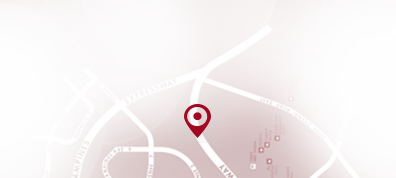Grief is a natural response to loss. It’s the emotional suffering you feel when something or someone you love is taken away. Often, the pain of loss can feel overwhelming. You may experience all kinds of difficult and unexpected emotions, from shock or anger to disbelief, guilt, and profound sadness. The pain of grief can also disrupt your physical health, making it difficult to sleep, eat, or even think straight. These are normal reactions to loss—and the more significant the loss, the more intense your grief will be.
Though we expect to grieve the death of a family member or friend, many other significant losses can also trigger grief such as divorce or relationship breakup, loss of health, losing a job, loss of financial stability, a miscarriage, retirement, death of a pet, loss of a cherished dream, a loved one’s serious illness, loss of a friendship, loss of safety after a trauma, or selling the family home and having to move.
Grieving such losses is important because it allows us to ‘free-up’ energy that is bound to the lost person, object, or experience—so that we might re-invest that energy elsewhere. Until we grieve effectively we are likely to find reinvesting difficult; a part of us remains tied to the past. Grieving is not forgetting. Nor is it drowning in tears. Healthy grieving results in an ability to remember the importance of our loss—but with a newfound sense of peace, rather than searing pain.
No two people are likely to experience grief in the same way. The way we think and feel, the way our body functions, and the way we interact with others may all be affected. Some of the more common experiences include: difficulty concentrating, apathy, anger—at those responsible, at the deceased, at ourselves, at God, at any handy target, guilt—”If only I had done. . .”, sleep disturbances, loss of appetite, withdrawal from others, irritability, intense sadness or tears when a memory is triggered, numbness, loneliness, or a sense of separateness from others, loss of life’s meaning.
Sometimes our reactions are so changeable, intense, or irrational that we fear we may be going crazy. Often grieving people are afraid to confront their grief for fear that if they open the door they will be drowned in a flood of tears or rage. Though this is very unlikely, allowing others to help us in our grieving is good insurance that we will keep our balance.
No matter what our intense experiences of grief may be, they are temporary . There is life after grief—if we acknowledge and work through our reactions, rather than trying to stop them.
Fortunately, much of the process of healthy grieving seems to be built into our genes. Acknowledging and growing from losses is such a natural process that much of it will happen without our direction—if we relax our expectations of how we “should” grieve and give up some of our need to be in control.
But healthy grieving is an active process; it is not true that, “You just need to give it time.” One way of understanding the work to be done is to think of grieving as a series of tasks we need to complete: 1)To accept the finality of the loss; 2)To acknowledge and express the full range of feelings we experience as a result of the loss; 3)To adjust to a life in which the lost person, object, or experience is absent; 3)To say good-bye, to ritualize our movement to a new peace with the loss.
Good friends, family members, or a personal counselor can all be helpful in doing this vital work. You can also do a good deal to help yourself.
Next week I'll address how to work through your grief, when it's time to seek professional help and how we can help when others grieve.
In the meantime, a great resource is HelpGuide.org and search "Grief and Loss".
Mental Health Awareness: Grief and Loss
14
Mar


